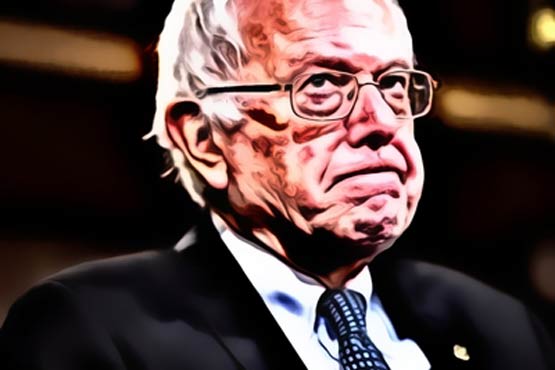
Poorly informed leftists are peddling the notion that the political crisis in Venezuela is the product of yet another heavy-handed U.S. "intervention" in Latin America. Sen. Bernie Sanders, I-Vt., compares it to the U.S. support for coups in Chile, Guatemala, Brazil and the Dominican Republic.
For the record, those regime changes happened in 1973, 1954, 1964 and 1965 - and what's happening in Venezuela half a century later bears no resemblance to them. On the contrary, the movement to oust the disastrous populist regime founded by Hugo Chavez is being driven by Venezuela's own neighbors, who until very recently had more help from Ottawa than from Washington, D.C. What we're seeing, in an era of U.S. retreat and dysfunction, is a 21st-century model for diplomacy in the Western Hemisphere.
The story of Venezuela since 1998 is partly about the fading of U.S. will to topple toxic regimes. The last time that American troops overthrew a ruler of a Latin American country was 1989, in Panama. Four consecutive U.S. presidents - including, until this month, President Donald Trump - avoided full-scale confrontation with Venezuela, even as the Chavistas destroyed its economy and democratic political system.
Latin American nations, unaccustomed to managing crises without U.S. leadership and influenced by their tradition of noninterventionism, also declined to challenge Chavez and his follower, Nicolás Maduro. Some, eager for the petrodollars Chavez freely handed out to allies, joined or supported what he grandly called "bolivarianismo."
Then came a humanitarian catastrophe without precedent in the region's modern history: shortages of food, medicine, power and even water that have driven 10 percent of Venezuelans - more than 3 million people - to flee the country. Suddenly, chavismo did not look so benign in Bogota and Brasilia. Swamped by refugees, Colombia and Brazil, along with Peru, Ecuador, Chile and Panama, concluded that something had to be done to stem the implosion.
Fortunately, they had a vehicle. In August 2017, 11 Latin American nations and Canada formed the Lima Group to press for the return of democracy in Venezuela. Reflecting the long-standing U.S. approach, the Trump administration encouraged the alliance but did not join it. After Maduro staged a blatantly fraudulent election last May, the group met at the United Nations last September to consider its options. Panama, backed by Canada, pushed the idea that Maduro's scheduled inauguration to a new term on Jan. 10 should become a rallying point.
The regional response was not driven only by the refugee crisis. Following the excesses of their own left-wing governments, Colombia, Argentina, Chile and Peru, among others, elected right-of-center presidents with no sympathy for chavismo. Brazil's long time support for Venezuela reversed: Right-wing nationalist Jair Bolsonaro, who was sworn in on Jan. 1, has hinted he would support a military intervention.
The turning point for the Venezuela crisis came on Jan. 4, when a Lima Group meeting issued a blistering statement saying members would not recognize Maduro's new term as legitimate. Sources told me the State Department was taken aback, believing Canada and its partners had gone too far. The Latin America team at the National Security Council, preoccupied with plans to challenge Cuba, dismissed Venezuela as a sideshow.
But the long-fractured Venezuelan opposition was galvanized. Realizing they had the chance to win decisive international support, members of the National Assembly rallied the next day behind a new leader, Juan Guaido, and a new strategy: to declare the post of president vacant once Maduro's previous term expired. Under the constitution promulgated by Chavez himself, that would make Guaido interim president.
It wasn't until Jan. 23, more than two weeks later, that the Trump administration jumped onto the regional bandwagon by recognizing Guaido. It did so clumsily, getting ahead of the announcements by the Lima Group, which gave Maduro and anti-imperialists everywhere cause to claim this was just another yanqui coup. "The White House jumped the gun, which made it look like this was organized by the U.S.," a Venezuelan involved in the process told me. "In reality, the U.S. was behind the curve."
In the past 10 days, to be sure, the administration has acted aggressively, freezing Venezuelan assets and effectively blocking the regime's critical U.S. oil revenues. It refused to withdraw U.S. diplomats when Maduro tried to expel them, and national security adviser John Bolton mysteriously appeared publicly with a notepad referring to "5,000 troops to Colombia." But for now it remains unlikely that the United States would send in Marines, as it once might have.
There's a decent chance Maduro will be forced out by sanctions and diplomacy. If there is an intervention, it will be multilateral and come at the impetus of Guaido and his Latin American allies. That won't fulfill the Sanders-style stereotypes of U.S. interventionism. But it's a good way for the hemisphere to operate in the 21st century.
(COMMENT, BELOW)
Diehl is deputy editorial page editor for The Washington Post.
Previously:
• 08/20/18: What the strongmen are forgetting
• 07/23/18: Why Putin, too, will come to regret the Helsinki summit
• 05/15/18: Putin, the putative all-powerful ruler?
• 03/06/18: Putin and Sissi are putting on elections. Why bother?
• 12/26/17: How Trump can put America first without the further angering his haters
• 11/14/17: A fake news campaign blames an innocent American for a coup attempt in Turkey
• 03/22/17: For this Russian dissident, holding Putin accountable was almost deadly --- twice
• 04/19/16: Obama's saddest legacy
• 04/05/16: The NATO that Trump doesn't see
• 03/08/16: The debate we need on Libya
• 02/24/16: Americans tortured by an American ally
• 02/12/16: Can Obama let go of his legacy wish?
• 11/09/15: Obama's olive branches are lifelines for authoritarian regimes
• 10/12/15: Putin's model of success


 Contact The Editor
Contact The Editor
 Articles By This Author
Articles By This Author